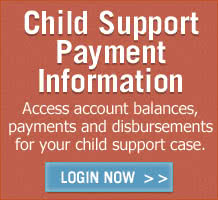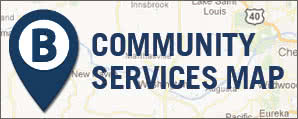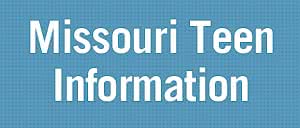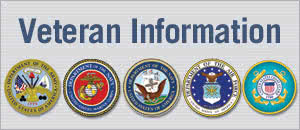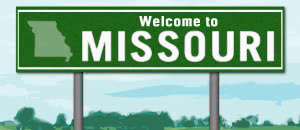Director’s Office
Department of Health and Senior Services
912 Wildwood
P.O. Box 570
Jefferson City, Missouri 65102
573/751-6001
health.mo.gov
Oversight for the Missouri Department of Health and Senior Services comes from the director, who is responsible for management of the department and the administration of its programs and services. The deputy department director assists the director in the management of the department and acts for the director in his or her absence. The divisions of Administration, Community and Public Health, Regulation and Licensure, and Senior and Disability Services; and the offices of Human Resources, Public Information, General Counsel, Governmental Policy and Legislation, report to the director and deputy department director.
A State Board of Health and a State Board of Senior Services advise the director regarding the priorities, policies and programs of the department and review rules promulgated by the department. The boards each consist of seven members appointed by the governor, with the advice and consent of the Missouri Senate.
Division of Administration
The Division of Administration provides a variety of support services for the Director’s Office and the programmatic divisions of the department. Services include budget administration; grant and contract administration; accounting and procurement functions; internal audit; maintenance of the inventory of physical assets; warehouse, delivery and mailroom services; and building lease management.
Division of Community and Public Health
The Division of Community and Public Health is responsible for supporting and operating more than 100 programs and offices addressing public health issues such as communicable disease control, chronic disease management, genetic health conditions, cancer, pregnancy, vital statistics, oral health and health care access. The division also assures the continuity of essential public health services to women, minorities and those living in rural areas.
Center for Emergency Response and Terrorism
The Center for Emergency Response and Terrorism is responsible for coordinating regional and state preparedness for public health emergencies and natural disasters, including biological, chemical and nuclear terrorism. Through partnerships with hospitals and other health care organizations, local entities including government and first responder agencies, and other partners, the center works to assure systems are in place to protect the health of Missourians during a public health emergency.
Center for Local Public Health Services
The Center for Local Public Health Services works to strengthen Missouri’s public health system of 114 local public health agencies. It provides leadership, training and technical assistance to those agencies, communities, not-for-profit organizations and other health-related key stakeholders regarding the development of processes that improve community-based public health systems.
Section for Chronic Disease Prevention and Nutrition Services
The Section for Chronic Disease Prevention and Nutrition Services directs statewide programs that are designed to prevent and control chronic diseases for all Missourians and support the nutritional health of high-risk populations. The section provides leadership in assessment, planning and policy development and implementation of evidence-based approaches to prevent and control cancer and chronic diseases, the leading causes of death in Missouri. In addition, the section administers statewide programs that provide food assistance and nutrition services, early screening and detection, and health promotion interventions to reduce risk factors for chronic diseases (e.g., tobacco use, physical inactivity, and poor diets). These programs are managed through the Bureau of Cancer and Chronic Disease Control; Bureau of Health Promotion; Bureau of Community Food and Nutrition Assistance; and Women, Infants, and Children (WIC) and Nutrition Services.
Section for Disease Control and Environmental Epidemiology
The Section for Disease Control and Environmental Epidemiology is the principal section involved in the investigation of the cause, origin, and method of transmission of communicable (or infectious) diseases and environmentally related medical conditions. The interrelated services focus on surveillance of diseases and the environment, upon which appropriate prevention and control interventions are based, including responses to disease outbreak situations. Included are specific responsibilities related to immunizations, tuberculosis, sexually transmitted diseases, HIV/AIDS, other communicable diseases, food and water-borne illnesses, zoonoses (diseases that humans contract from animals), emerging infections such as SARS, Monkeypox, and West Nile Virus, food safety and protection, environmentally related health hazards (such as elevated blood lead levels) and hazardous substance control. The section also provides key environmental services that regulate or license lodging facilities, onsite sewage systems, lead removal contractor training and licensing, frozen dessert licensing, food processing and retail food protection, as well as sanitation inspections of child care facilities. The primary units are the bureaus of Communicable Disease Control and Prevention; Environmental Epidemiology; Environmental Regulations and Licensure; Immunization Assessment and Assurance; HIV, STD and Hepatitis; and the Office of Veterinary Public Health.
Section for Epidemiology for Public Health Practice
The Section for Epidemiology for Public Health Practice promotes a better understanding of health problems and needs in Missouri and assists the division in many functions including initiation and maintenance of surveillance systems, data management and reporting; collection of birth and death information; coordination of specific grants; public information dissemination; and fiscal services. The section also issues certified copies of Missouri birth and death records. These support services are available through the offices of Epidemiology, Community Health Information; and the bureaus of Health Informatics, and Vital Records.
Section for Healthy Families and Youth
The Section for Healthy Families and Youth promotes optimal health by providing leadership to both the public and private sectors in assessing health care needs of families and communities and assuring that the health system responds appropriately. This section is also responsible for developing policy; planning systems of care; and designing, implementing and evaluating programs to meet the health care needs of families in the state of Missouri. The primary units are the bureaus of Genetics and Healthy Childhood, and Special Health Care Needs.
State Public Health Laboratory
The State Public Health Laboratory provides testing services in the fields of newborn screening, chemistry, environmental bacteriology, microbiology, serology and virology. Each year, the laboratory performs more than 5 million tests (many required by law). It is the only Centers for Disease Control and Prevention Laboratory Response Network laboratory in Missouri. The laboratory is also responsible for approving methods and instruments and issuing permits to qualified individuals to perform tests used to enforce Missouri’s law prohibiting driving while under the influence of alcohol and drugs.
Division of Regulation and Licensure
The Division of Regulation and Licensure has responsibility for a spectrum of services for Missouri citizens from child care to elder issues, as well as the Family Care Safety Registry, the Board of Nursing Home Administrators, and the Certificate of Need program.
Section for Health Standards and Licensure
The Section for Health Standards and Licensure is responsible for assuring that the care and services provided by hospitals, ambulatory surgical centers, home health agencies, hospices, ambulance services, emergency medical technicians, persons who prescribe or dispense controlled substances, end stage renal dialysis facilities, and other types of health care facilities meet state and Medicare/Medicaid standards. Periodic licensure surveys and complaint investigations are also performed as part of the section’s authority.
Section for Long-Term Care Regulation
The Section for Long-Term Care Regulation is responsible for conducting state inspections and federal surveys, and for investigating complaints regarding long-term care facilities. The section also conducts the federal participation survey of habilitative facilities servicing clients diagnosed with mental retardation and/or developmental disabilities who participate in the Medicaid program. The section oversees the Pre-Admission Screening and Annual Resident Review (PASARR) process, provides construction plan review services to health care facilities regarding new construction and extensive remodeling projects, and maintains the level one medication aide register, certified medication technician register and the federally mandated nurse assistant register.
Division of Senior and Disability Services
The Division of Senior and Disability Services is the designated State Unit on Aging, carrying out the mandates of the State of Missouri regarding programs and services for seniors. The division is responsible for the development and implementation of programs designed to protect seniors and adults with disabilities and for the administration of an integrated system of care for eligible adults that require long-term care. In coordination with the department director, the division director, deputy division director and financial office advise legislators, advocates, state agencies and other organizations and individuals regarding services and data available to support this function.
Section for Adult Protective and Community Services
The Section for Adult Protective and Community Services investigates reports of elder abuse, neglect and financial exploitation and provides crisis intervention and Adult Protective Services for eligible adults (age 18 and over) who are determined to be unable or unwilling to provide or access services needed to meet their daily needs. Additionally, the section provides oversight to Medicaid-funded home- and community-based services that are authorized on behalf of adults choosing to receive long-term care in the home or community. The section administers programs designed to maximize independence and safety for adults who choose to remain independent in the community by accessing state and federal community-based programs.
Central Registry Unit (CRU)
The Central Registry Unit (CRU) maintains the statewide toll-free telephone number (800-392-0210) for reporting alleged abuse, neglect or financial exploitation of persons age 60 and older and adults with disabilities between the ages of 18 and 59. Reports of abuse, neglect or exploitation include those living in a community setting (such as a private residence or apartment), as well as those residing in state licensed long-term care facilities (such as a nursing home or a residential care facility). The CRU also registers reports from other care settings such as hospitals, on services delivered through state-contracted in-home service providers, home health agencies, and hospice programs. The Missouri Shared Care Tax Credit registry is also maintained at CRU.
Office of the Long-Term Care Ombudsman
The Office of the Long-Term Care Ombudsman advocates for facility residents, has responsibility for complaint resolution on behalf of facility residents, educates and trains staff, consumers and community partners on issues related to long-term facility care, and manages volunteer ombudsmen serving in facilities across the state.
Bureau of Senior Programs
The Bureau of Senior Programs is responsible for oversight of programs authorized and funded through the Older Americans Act. The Bureau is responsible for collaboration and coordination of programs within various state agencies and local communities as necessary to set policy and integrate state and federal goals for seniors within Missouri with emphasis on programs that enable seniors to maximize independence and safety in the community. Program implementation is administered by Area Agencies on Aging who are responsible for ensuring that federal funding is allocated in a manner that reflects the needs of seniors within each of the ten planning and service areas.


